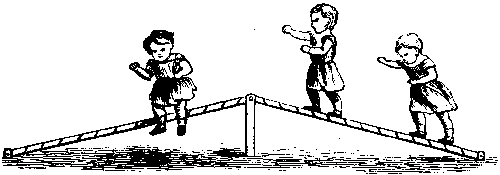pandiculation
n. the act of stretching oneself
Language
Fooled Again
Court transcript quoted by Rodney Jones in Disorderly Conduct: Verbatim Excerpts From Actual Cases, 1987:
The Court: I got the Quadrophenia, but then he said somebody played in it, and I didn’t get that.
Prosecutor: The Who.
The Court: The what?
Witness: Musicians.
Prosecutor: The Who.
Witness: The Who.
The Court: Who?
Witness: The Who. That’s the name of the band.
The Court: So that’s the name of the group, the Who?
Witness: Yes, the Who.
The Court: Not the What? The Who?
Witness: No, the Who.
The Court: You got it, everybody? The Quadrophenia is a movie with the Who.
Witness: Punk rockers.
The Court: All right.
Misc
- ALONE and UPRAISE can be beheaded twice and retain their essential meanings.
- Evelyn Waugh’s first wife was named Evelyn.
- 1033 = 81 + 80 + 83 + 83
- Can a shadow rotate?
- “Genius is nothing but a greater aptitude for patience.” — Benjamin Franklin
Found Out

In spite of twenty-five years in Southern California, [Aldous Huxley] remains an English gentleman. The scientist’s habit of examining everything from every side and of turning everything upside down and inside out is also characteristic of Aldous. I remember him leafing through a copy of Transition, reading a poem in it, looking again at the title of the magazine, reflecting for a moment, then saying, ‘Backwards it spells NO IT ISN(T) ART.’
— Igor Stravinsky, Dialogues, 1982
In a Word

schoenobatist
funambulist
equilibrist
n. a tightrope walker
Misc
- SWEET-TOOTHED has three consecutive pairs of letters. SUBBOOKKEEPER has four.
- Will you answer this question negatively?
- 4624 = 44 + 46 + 42 + 44
- The telephone number 278-7433 spells both ASTRIDE and CRUSHED.
- “Nothing great was ever achieved without enthusiasm.” — Emerson
In a Word
contrist
v. to make sad
dolorifuge
n. anything that drives away pain
dedolence
n. absence of sorrow
Misc
- EVIAN, SEIKO, and STROH’S are all English words spelled backward.
- Can “I apologize” be false?
- 165033 = 163 + 503 + 333
- Little Wymondley, in Hertfordshire, is bigger than Great Wymondley.
- “How old would you be if you didn’t know how old you was?” — Satchel Paige
Trivium

RICHARD MILHOUS NIXON and WILLIAM JEFFERSON CLINTON are the only U.S. presidents whose names contain the letters C-R-I-M-I-N-A-L.
In a Word
psilosopher
n. a superficial philosopher
